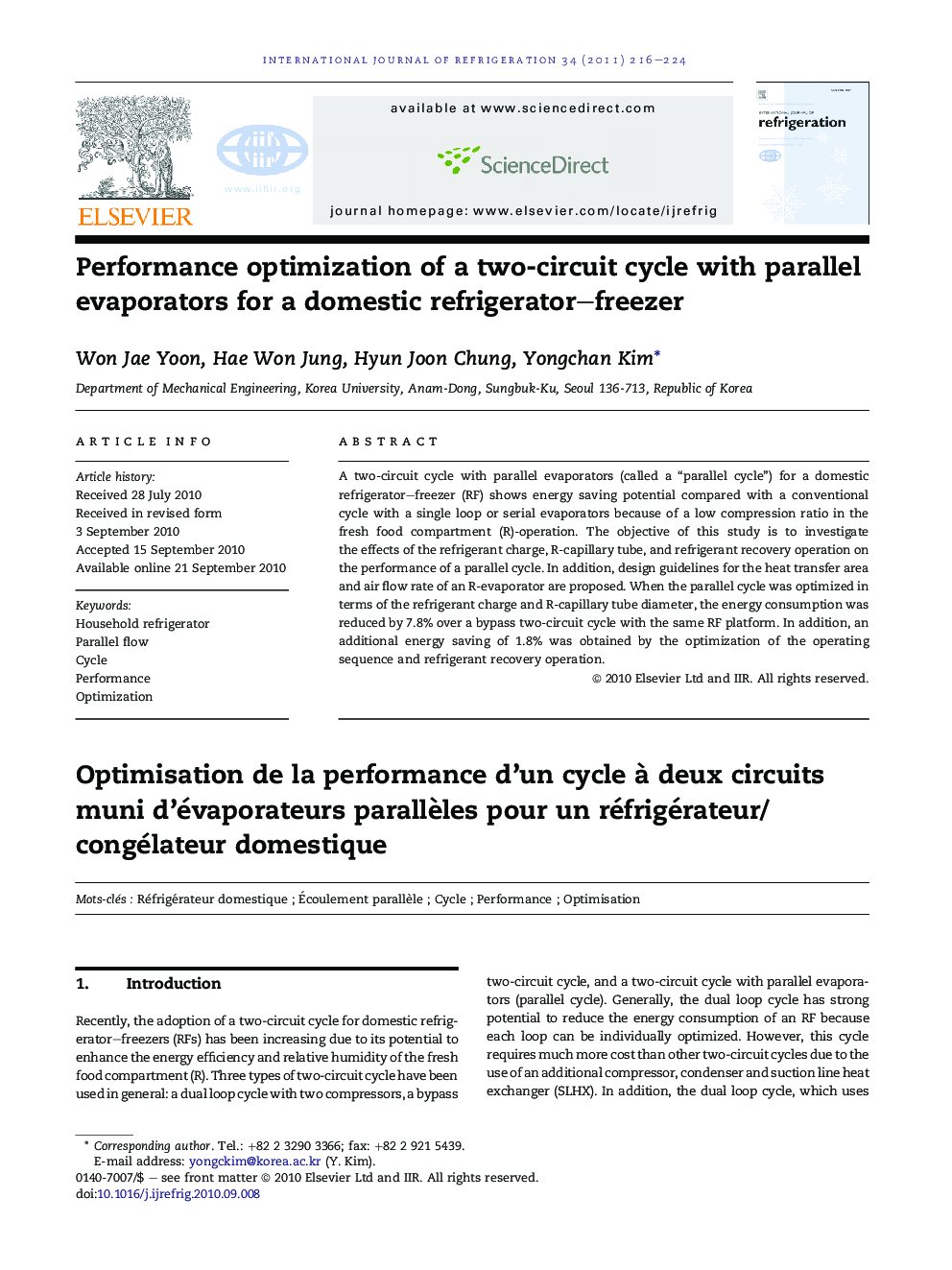| Article ID | Journal | Published Year | Pages | File Type |
|---|---|---|---|---|
| 787293 | International Journal of Refrigeration | 2011 | 9 Pages |
A two-circuit cycle with parallel evaporators (called a “parallel cycle”) for a domestic refrigerator–freezer (RF) shows energy saving potential compared with a conventional cycle with a single loop or serial evaporators because of a low compression ratio in the fresh food compartment (R)-operation. The objective of this study is to investigate the effects of the refrigerant charge, R-capillary tube, and refrigerant recovery operation on the performance of a parallel cycle. In addition, design guidelines for the heat transfer area and air flow rate of an R-evaporator are proposed. When the parallel cycle was optimized in terms of the refrigerant charge and R-capillary tube diameter, the energy consumption was reduced by 7.8% over a bypass two-circuit cycle with the same RF platform. In addition, an additional energy saving of 1.8% was obtained by the optimization of the operating sequence and refrigerant recovery operation.
